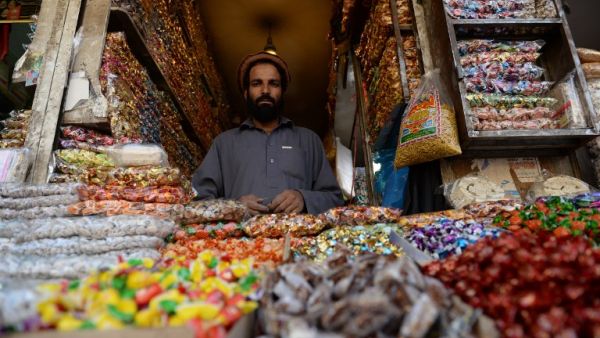Some Saudis have resorted to working part-time in seasonal businesses during Eid to make ends meet.
Eid vacation began on Saturday and ends on Aug. 12 for government employees. The vacation is shorter in the private sector.Yet many business opportunities arise in the last 10 days of Ramadan and Eid and some Saudis prefer to make the most of their vacation.
Khaled Bakhshab, a Saudi security guard at a local bank, told Arab News that he earns SR3,500 a month, which is insufficient in meeting his expenses. “Every year, I work at a chocolate shop as a part-timer, where I design chocolate baskets. I make about SR3,000 in 10 days,” he said. “At the beginning, it was difficult to learn, but I have acquired the skill after years of practice.”
According to Bakhshab, most Saudi government employees look for jobs at small businesses in peak seasons like Ramadan, Eid and Haj.
Fadia Al-Mualim, a nurse at a government hospital, said she has been thinking about creating a small business to benefit from the Eid break.
“I get a salary of SR4,000 at the hospital, but this is not enough for me, especially in Eid. I have to buy new clothes and an abaya, as well as gold. This is why I always work during Eid. In the past, I have designed chocolate baskets, but this year, I have decided to make hair accessories, which I will sell at an abaya shop owned by my friend,” she said. “The hospital pays us overtime if we agree to work during Eid, but I earn much less than what I would earn when I work in my own business.”
Dahi Al-Sughair, a Saudi technician at a government company, said he found part-time work the best way to earn extra money to cover his expenses.
“This season is considered a tough time for many families, as it’s summer and we have to get ready for schools, Eid and Ramadan. The cost of living is higher during Ramadan, which is why we try to find extra sources of income,” he said. “I am currently using my car to drive women to malls and cafes. This business is fruitful in Ramadan, when women frequently visit shopping centers.”
Al-Sughair refused to engage in such work in the past but has resorted to such measures under financial pressure to cover his expenses.
“I felt too shy to work as a driver in the past, but today, I have no choice. My salary is too low, while inflation is on the rise. Taking on a part-time job is the only solution for my financial problems. My friend advised me to work in this field, saying he earned SR3,000 during the last 10 days of Ramadan,” he said.









